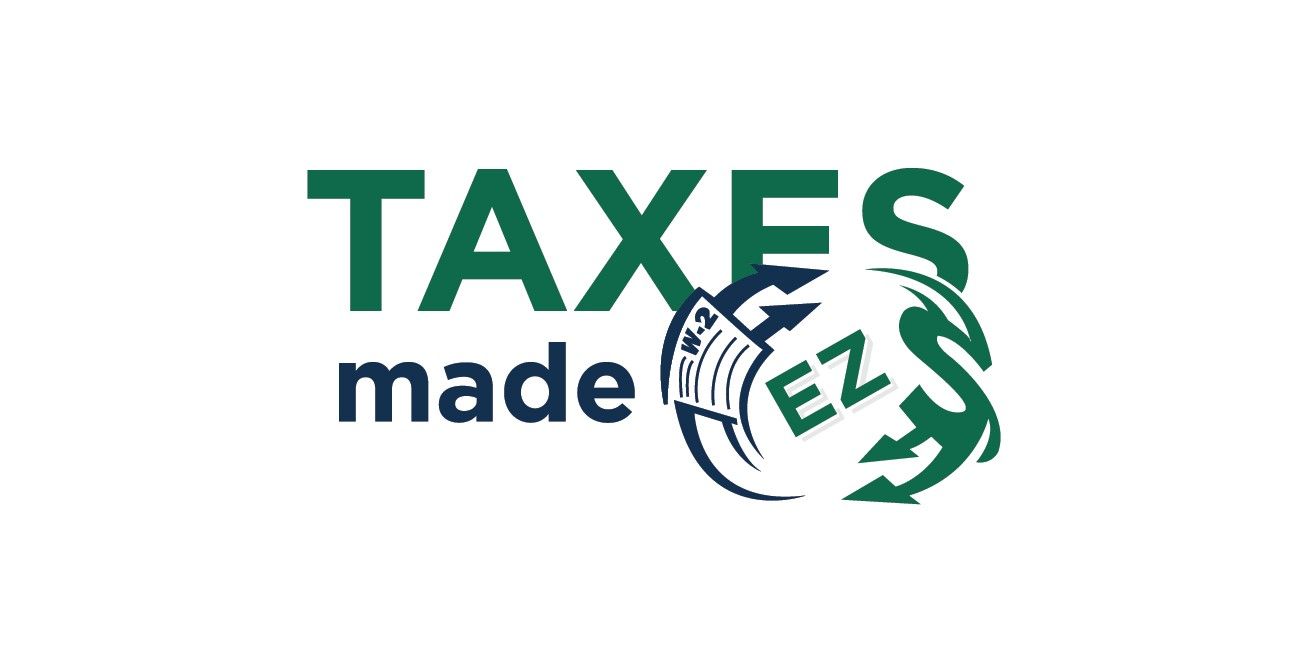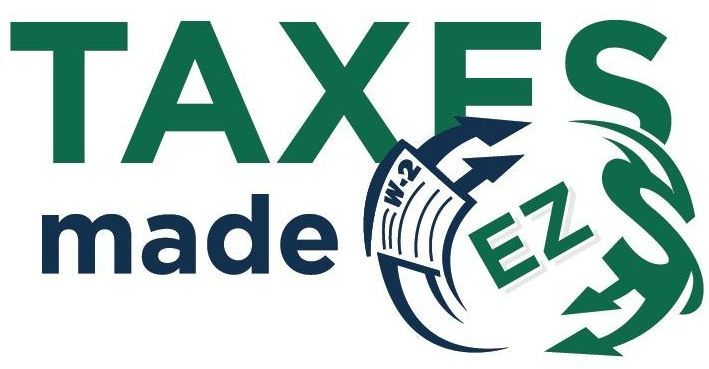What to Do If You Owe Taxes and Can’t Pay Right Away
Tax season can be stressful, especially if you find out that you owe more taxes than you can pay right away. Don’t panic!
You can take several steps to manage your tax bill and avoid severe penalties. At Taxes Made EZ, we’re here to guide you through the process and help you find the best solution.
1. File Your Tax Return on Time
Even if you can’t pay the total amount you owe, it’s crucial to file your tax return by the deadline. Filing on time will help you avoid the hefty failure-to-file penalty, typically 5 percent of your unpaid taxes for each month your return is late, up to a maximum of 25 percent.
2. Pay What You Can
Pay as much of your tax bill as possible by the due date. The more you pay now, the less interest and penalties you will accrue over time. If you can pay off a significant portion of the debt, it will reduce the overall financial burden.
3. Consider an Installment Agreement
If you can’t pay your taxes in full, the IRS offers installment agreements that allow you to pay off your debt over time. You can apply for an installment agreement online through the IRS website if you owe $50,000 or less in combined tax, penalties, and interest. You can make monthly payments if approved until the debt is fully paid off.
4. Explore an Offer in Compromise
An Offer in Compromise allows you to settle your tax debt for less than the full amount you owe if you prove that paying the full amount would cause financial hardship. When evaluating an OIC, the IRS considers your ability to pay, income, expenses, and asset equity. This option can be complex and might require professional assistance to navigate successfully.
5. Request a Short-Term Extension
Sometimes, you might get a short-term extension to pay your tax bill. The IRS may grant you up to 120 days to pay in full. While this option doesn’t reduce the amount you owe, it can give you some breathing room to gather the necessary funds.
6. Use a Credit Card or Loan
While using credit to pay your taxes is not always advisable, it can be an option if you can’t arrange other payment methods. Paying with a credit card or taking out a personal loan might help you avoid penalties and interest from the IRS, but keep in mind that you’ll incur interest and fees from your credit card or loan.
7. Seek Professional Help
If you’re unsure about the best course of action or need assistance negotiating with the IRS, consider seeking help from a tax professional. At Taxes Made EZ, our experienced team can provide personalized advice and help you explore all available options to manage your tax debt effectively.
Conclusion
Owing taxes you can’t pay right away can be daunting, but you have options. You can manage your tax bill and avoid severe penalties by taking proactive steps. Remember, the key is to act quickly and seek help if needed. At Taxes Made EZ, we’re here to support you through every step of the process. Contact us today for expert guidance and personalized solutions.
Contact us today at (856) 232-0958 or visit our website at www.mytaxesmadeez.com

At Taxes Made EZ, we understand that tax planning is essential for individuals in all financial situations, but it becomes even more critical for high-income earners. Proper tax planning can optimize deductions, maximize savings, and create a long-term strategy to reduce tax burdens while fully complying with tax laws. Below are some key strategies and tips specifically for high-income earners. Minimize Your Tax Liability The U.S. tax system is progressive, meaning that your income increases, so does your tax rate. High-income earners fall into the highest tax brackets, with marginal rates reaching 37%. Strategic tax planning is vital to reduce your taxable income and minimize your debt. One effective way to do this is by contributing to tax-deferred retirement accounts such as a 401(k) or traditional IRA. These contributions lower your taxable income while helping you build a solid retirement plan. Additionally, contributing to Health Savings Accounts and 529 college savings plans offers tax advantages. HSAs provide tax-free funds for qualified medical expenses, and 529 plans help you save on education costs. Maximize Deductions and Credits For high-income earners, itemizing deductions can provide far more tax savings than the standard deduction. Some of the most beneficial deductions include mortgage interest, charitable contributions, and state and local taxes up to $10,000. Planning ahead can further enhance these deductions by strategically timing charitable donations or deferring income into the next tax year. Tax credits can also directly reduce your tax bill, making them extremely advantageous. High-income earners should explore credits for energy-efficient home improvements, educational expenses, and other applicable credits. These credits can significantly lower your overall tax liability, and checking eligibility each tax year is essential. Manage Investment Income High-income earners often generate significant income through investments in stocks, bonds, real estate, and other assets. Investment income is subject to different tax rules, and smart planning is essential to minimize taxes in this area. For example, holding investments for more than a year benefits you from lower long-term capital gains tax rates, while short-term gains are taxed at your regular income tax rate. Tax-loss harvesting can also be a valuable strategy—selling losing investments to offset gains and reduce taxable income. Additionally, focusing on assets that generate qualified dividends, which are taxed at the lower capital gains rate, can provide further tax savings compared to ordinary income. Consider Estate and Gift Tax Strategies For individuals with significant wealth, estate and gift taxes can take a large chunk of your assets, with estate tax rates reaching as high as 40%. Estate planning is crucial to minimize the impact of these taxes and protect your wealth for future generations. High-income earners can take advantage of strategies such as gifting assets to heirs. The annual exclusion limit allows you to gift up to $17,000 per recipient, tax-free. Additionally, establishing irrevocable trusts can protect your assets from estate taxes while enabling you to pass on wealth in a tax-efficient manner. Partner With a Tax Professional At Taxes Made EZ, we are committed to putting your financial goals and circumstances first. Our team stays current on the latest federal and state tax laws, and we specialize in working with high-income earners and individuals with complex financial situations. We’re here to help you navigate the intricacies of tax planning, ensuring you take full advantage of every opportunity to reduce your tax burden. When you partner with us, you can feel confident knowing that our tax experts are working to safeguard your financial future. Let us help you simplify your tax-filing process while maximizing your savings. Call us today at (856) 232-0958 or schedule a consultation to learn more.

A Roth IRA, or individual retirement account, is a powerful tool to help secure your financial future. Unlike traditional retirement accounts, contributions to a Roth IRA are made with after-tax dollars. This means you pay taxes on the money upfront, but the funds grow tax-free, and withdrawals in retirement are also tax-free, as long as certain conditions are met. Below, we’ll explore the benefits of a Roth IRA and strategies to maximize its potential. Understand the Benefits A Roth IRA offers several key benefits that make it an attractive option for retirement planning. The primary advantage is tax-free growth. Since you contribute after-tax dollars, your investment earnings grow tax-free, and withdrawals made after retirement, once you meet the conditions, are also tax-free. To qualify, you must have held the account for at least five years and be 59 and a half years old. Additionally, unlike traditional IRAs, Roth IRAs do not require mandatory distributions at age 73. This lets your investments grow for as long as you want, giving you greater control and flexibility over your financial future. Maximize Contributions Maximizing your contributions is essential to get the most out of your Roth IRA. While large donations are ideal, even negligible, consistent amounts can add up over time, thanks to the power of compound interest. For 2024, the contribution limit is $6,500 per year, or $7,500 if you're 50 years old or older. Check income eligibility limits, as they can affect how much you can contribute. Starting early and contributing regularly can significantly boost your retirement savings in the long run. Diversify Your Investment Strategy It’s important to remember that a Roth IRA is an account, not an investment itself. You can invest in stocks, bonds, mutual funds, ETFs, and more within the Roth IRA. Diversifying your investments is crucial to manage risk and optimize growth. A balanced mix of growth-focused assets like stocks and more conservative investments like bonds can provide long-term stability. Aim for an investment strategy that aligns with your age and risk tolerance, and adjust as you approach retirement. Monitor and Adjust Over Time As your life circumstances and financial goals evolve, your Roth IRA should evolve with them. Regularly review your account, assess your contributions, and fine-tune your investment strategy. Whether your income increases or your retirement timeline shifts, periodic adjustments can ensure that your Roth IRA remains aligned with your financial goals. Combine With Other Retirement Plans One of the advantages of a Roth IRA is that it can complement other retirement plans, such as a 401(k). A 401(k) offers tax-deferred savings, while a Roth IRA grows tax-free. Having a combination of tax-deferred and tax-free accounts gives you more flexibility in retirement, allowing you to manage your withdrawals more efficiently and potentially reduce your overall tax burden. Plan for a Secure Future Planning your financial future with a Roth IRA can provide long-term financial security, especially when paired with other retirement strategies. Consider consulting one of our expert tax professionals to ensure you’re making the most of your Roth IRA and other retirement accounts. We can guide you through the process and help you maximize your retirement savings. Call us today at 856-232-0958 or schedule a consultation to get started.







